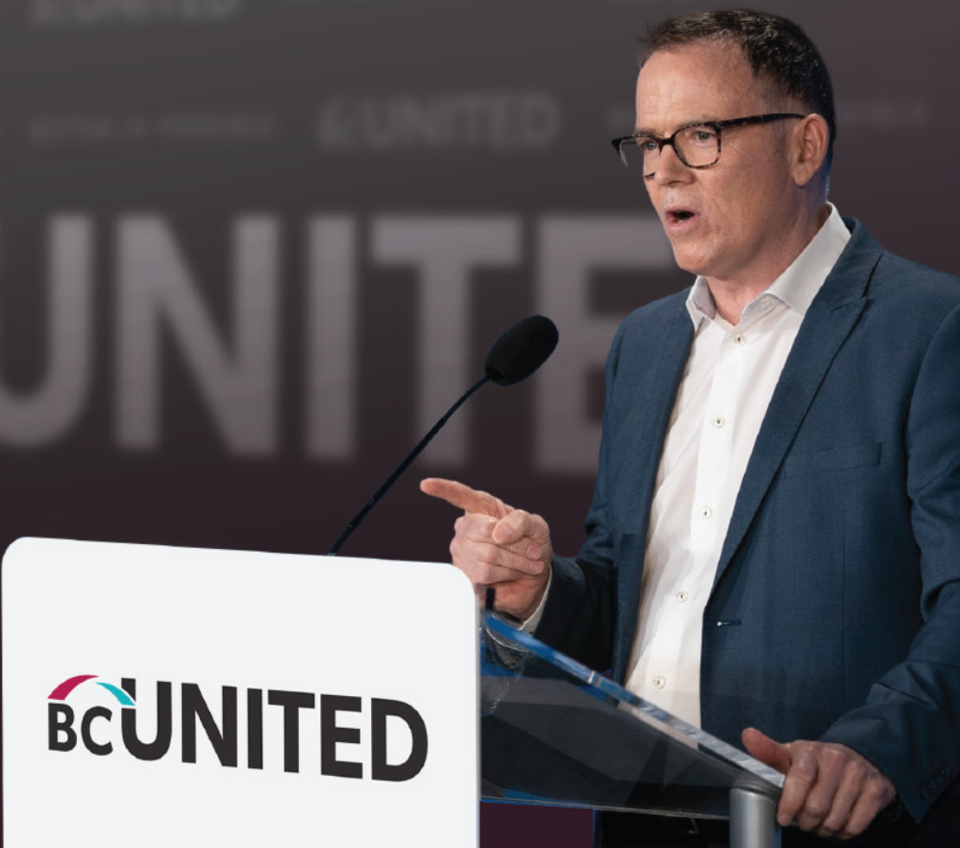This summer during a by-election, BC United was given a sobering dose of reality, coming in last place behind all other major provincial political parties. The BC Conservatives (not associated with the federal Conservatives) had their best performance in over a decade, with 2,702 votes, and secured a second-place finish on election day.
If you’re conservative-leaning in BC, there is more than one party trying to win your vote and support.
BC United (formerly BC Liberals) changed its name, shedding its often mistaken association with the federal party. The former BC Liberals were born as a coalition of the federal Liberals and the Conservative Party, forming a free-market alternative to the NDP.
BCU leaders have alternated in their federal allegiance, with Christy Clark rising in the political ranks as a Young Liberal; Andrew Wilkinson, the BC campaign co-chair to Michael Ignatieff; to present day, Kevin Falcon, a loyal Conservative, especially in federal leadership campaigns. But, the demographic of the membership isn’t as balanced as its leadership roster.
In the era of politics fueled by social issues, there is little keeping the ‘free enterprise’ coalition together. Take a look at the economic policies from Ottawa; they couldn’t be more different between the two rivals across the aisle in the stark contrast between Poilievre and Trudeau.
BC United created the revenue-neutral carbon tax and is now divided on the issue. Pierre Poilievre wants to "scrap the tax" and the Liberal Party of Canada is a vocal supporter of the tax. The carbon tax was initially a policy that united the coalition because of the fiscal sophistication that appeased the fiscal conservatives while also balancing the environmental protectionism that a moderate voter would appreciate.
Two neighbouring provinces in Alberta and Saskatchewan benefit from steady harmony in the centre-right.
The Saskatchewan Party led by Premier Scott Moe ended decades of NDP governance in the province and, after four terms in power, still holds a commanding grip on the electorate. If a provincial election were called today in the wheat province, the Saskatchewan Party would crush it.
In Alberta, the NDP was on a winning streak and lost because the right was united. The political stars were even aligned in favour of NDP Leader Rachel Notley as her opponent in UCP’s Danielle Smith was polling very low in favourability. Alas, the NDP wouldn’t get their comeback celebration.
The BC NDP doesn’t have issues of internal fragmentation. Logically, they have little to disagree about on their party policy and even left an advantageous void for the BC Greens to prop them up for a majority. The NDP holds an iron grip on the Legislative Assembly and successfully absorbed Green and even some disgruntled BC Liberal voters to win a commanding majority in the 2017 and 2020 elections.
If his party is to truly be united, Kevin Falcon must embrace conservative members or lose a voting block to the BC Conservatives led by former BC Liberal John Rustad. Conservative leaders in B.C. need to give their heads a shake or risk another cycle of political wilderness.
The NDP will do everything it can to pit the two parties against each other. To avoid another term as opposition leader, Kevin Falcon must return to the fall session of the legislature with "darn right" ideas the centre-right won’t be able to ignore.
United in name, but Falcon needs to reconcile a fractured party for a win in 2024.
Allie Blades is a Campaign Strategist with Mash Strategy.



